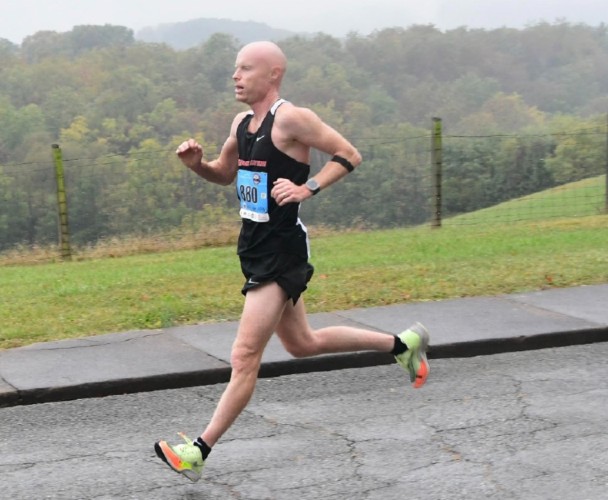One of the things I like about the sport of distance running is it tends to be a constant experiment of one. There are basic training principles that can be applied across the board and many excellent coaches you can seek out for advice, but over time, you really have to take all that “stuff” and figure out what works best for you. I’ve spent the better part of 20 years doing just that and I still don’t have all the answers. However, I still enjoy the process of trying to figure it all out and I’m not afraid to experiment.
One thing I’ve learned over the years is I need lots of mileage to be successful. The periods of my running where I’ve had the most success have been those where I ran the most miles, not necessarily the most impressive workouts. In fact, there have been times where I was killing some workouts but running lower miles and didn’t race as fast as I did when I was running higher miles and "ok" workouts. It’s just the way I’m wired. On the opposite side of the spectrum, I’ve also learned that you can’t totally neglect speed, because you WILL lose it if you do so, and the longer you neglect it, the harder it is to get it back, especially as you age. So, for me, the best training program is one with fairly high miles and enough speed to keep me sharp. Sounds simple enough, right?
The problem is, as I’ve gotten older, it’s become harder and harder to run as many miles as I did as a younger man. I used to be able to knock out 90-100 mile weeks over and over with no real problem. Nowadays, however, it seems that a few weeks in even the 80-85 range will leave me fried and in need of several low mileage weeks to recover. Furthermore, as we all do, I’ve lost some of my natural speed and I’ve also had to neglect working on it for lengthy periods of time thanks to various injuries. It’s been a deadly combination that’s caused my performances to suffer greatly. So, my dilemma, and in turn my challenge, is to figure out a way to do the type of training I know I need to do without burning myself out.
I was putting some thought into that last week when I remembered a training pattern that Steve Taylor told me about fairly early in my running career. Since I haven’t asked his permission to share it, I won’t go into the exact details, but he told me this was a somewhat unorthodox training schedule that worked for him, although he also said he wouldn’t necessarily recommend it. That said, what I’ve decided to do is a variation of his plan.
The basics boil down to this. Each training week will have a specific focus and will emphasize one of the following: 1) volume, 2) volume/quality mix, 3) quality, or 4) recovery. So, one week I may run a heavy dose of mileage without much in the way of speedwork at all. Another week I may run intermediate mileage with some workouts added to the mix. Another week I may run relatively low mileage with, as Steve said when telling me what he did, some “outrageous workouts," and finally, every now and then, I’ll have a week dedicated to recovery where everything will get pulled back.
The reasoning behind this change is as follows. As I mentioned earlier, I know what I need to be successful, and I’m hoping this is a way of getting those things without burning myself out. The theory is you’re never focusing on the same thing from week to week, which has several benefits. First, it keeps your body guessing, a very good thing for training. Second, it keeps you from getting bored both physically and mentally, and finally, and this is probably the biggest one, it prevents burnout from trying to cram too many things into each and every week. Over time, you get everything your body needs to be successful, from the mileage, to the strength and VO2 max workouts, to the really fast running, to the recovery, but you don’t try to squeeze several of those into every single week. By the end of the high mileage week, I’ll probably be tired of all the miles and ready to run fast. By the end of the high quality week, I’ll probably be tired of running fast and just want to log some easier miles. Everything plays off everything else and one element builds on the other. For me, since I need high mileage but can’t do it week after week, I’ll do a week of it then change focus for a couple weeks before coming back to it again.
So, there it is, and even though I probably haven’t done the best job explaining it, I believe the reasoning is sound. I will continue to do the ancillary stuff I’ve added to my training, things like hill sprints, drills, strength training, core, etc., and I’m going to continue to run the bulk of my mileage slower/easier than I have in the past. Like I said in the beginning, it’s an experiment of one, and I’m looking forward to seeing how it all plays out.

1 comment:
Interesting. I am excited to see how this goes for you this summer/fall. I am still think you need to give the half or the full a go!
Post a Comment